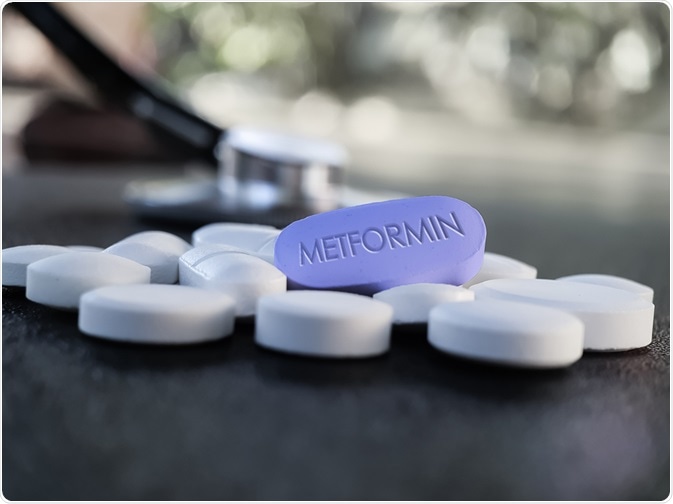Metformin is a biguanide used to treat type 2 diabetes mellitus and most commonly prescribed oral hypoglycemic agent. Metformin is now also used to treat polycystic ovary syndrome and some malignancies. Despite a good safety profile in a majority of patients with diabetes, the risk of metformin-associated lactic acidosis is genuine when safety guidelines are ignored.
 Image Credit: Sonis Photography/Shutterstock.com
Image Credit: Sonis Photography/Shutterstock.com
Overdoses with metformin are rare but may result in serious consequences. Case reports and small case series of serious toxicity from metformin overdosage can be found in the medical literature, often with the portrayal of extracorporeal methods for the management of the subsequent severe lactic acidosis.
Lactic acidosis can be defined as metabolic acidosis with a blood pH of less than 7.35 and serum lactate of more than 2 mmol per liter. It can occur either with therapeutic metformin dosing (which is rare) or in overdose situations. 0.03 cases of lactic acidosis per 1000 patient-years occur within therapeutic dosing, with a majority of these cases among patients that have contraindications to metformin (such as renal insufficiency).
In overdose situations, lactic acidosis is seen much more habitually, even though the precise incidence is unclear. Lactic acidosis has been observed in 1.6% of metformin exposures reported to poison control centers; nevertheless, merely 10% of these exposures were due to deliberate overdoses. The incidence of metformin-associated lactic acidosis was 12.8% in a review of poison control center inquiries from Germany.
The minimum reported lethal dose was found in a 42-year-old patient who had a blood metformin level of 188 µg/ml (e.g. therapeutic range level is usually between 0.5–2.5 µg/ml). Although the intake of 35 g of metformin has shown to be lethal, the maximum reported tolerated exposure was in a 70-year-old diabetic patient who ingested 63 grams of metformin.
Signs and symptoms of metformin overdose
Metformin overdose associated with lactic acidosis presents with nonspecific symptoms and includes severe nausea, vomiting, diarrhea, epigastric pain, thirstiness, lost appetite, lethargy and hyperpnoea. Hypotension, hypothermia, acute renal failure, coma and cardiac arrest also represent significant clinical features.
The estimated mortality rate of metformin-associated lactic acidosis is between 30 and 50% but can be high as 80%. The condition occurs most commonly in patients with substantial underlying medical problems (predominantly renal insufficiency). Mortality is not in complete correlation with either metformin or lactate levels.
Hyperglycemia linked to metformin overdose has occasionally been reported, although less common than hypoglycemia. Such hyperglycemia has been linked to acute pancreatitis in several cases of metformin toxicity from both therapeutic dosing and intentional overdose. Another potential complication is the elevated osmolal gap (without exposure to toxic alcohols).
Adequate management
The current treatment approach of the metformin-associated lactic acidosis is volume expansion, intravenous application of sodium bicarbonate, intermittent hemodialysis and high volume continuous venovenous hemodiafiltration with a bicarbonate substitute.
Metformin overdose should be directed with regular monitoring of renal function. Hemodialysis has an important role in and removal of the metformin from the circulation, preventing in turn further acidosis. Hemofiltration is the preferable option for patients who are hemodynamically unstable to tolerate hemodialysis.
The use of sodium bicarbonate is still controversial. Potential disadvantages of using intravenous bicarbonate include excess sodium load, left shift of the oxyhemoglobin dissociation curve, reflex vasodilation after bolus injection and disturbances in serum potassium and calcium levels.
References
Further Reading
Last Updated: May 18, 2021